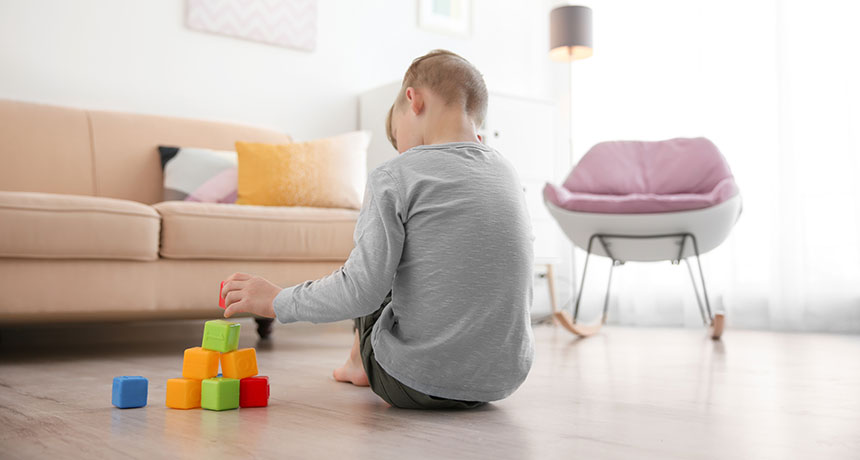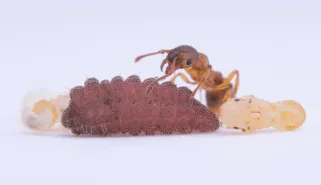
MIXED-UP MICROBES Children with autism spectrum disorders have unusual mixes of gut microbes. Altering those mixes has positive, long-lasting effects on behavior, a study finds.
New Africa/Shutterstock
MADISON, Wis. — Giving children with autism a healthier mix of gut bacteria as a way to improve behavioral symptoms continued to work even two years after treatment ended.
The finding may solidify the connection between tummy troubles and autism, and provide more evidence that the gut microbiome — the collection of bacteria and other microbes that live in the intestines — can influence behavior.
“It’s a long way from saying there’s a cure for autism,” says Michael Hylin, a neuroscientist at Southern Illinois University in Carbondale who was not involved in the work. “But I think it’s a promising approach. It’s one that’s worthwhile.”
Children with autism spectrum disorders often have gastrointestinal problems. In previous studies, environmental engineer Rosa Krajmalnik-Brown of Arizona State University in Tempe and colleagues discovered that children with autism had fewer types of bacteria living in their guts than typically developing children did. And many of the kids were missing Prevotella bacteria, which may help regulate immune system actions. The researchers wondered whether altering the children’s cocktail of gut microbes to get a more diverse and healthier mix might help fix both the digestive issues and the behavioral symptoms associated with autism.
In a small study of 18 children and teenagers with autism, the scientists gave kids fecal transplants from healthy donors over eight weeks. During and two months after the treatment, the kids had fewer gastrointestinal problems, including diarrhea, constipation, abdominal pain and indigestion, than before the therapy. Autism symptoms, such as hyperactivity, repetitive actions and irritability, also improved and seemed to be getting even better at the end of the trial than immediately after treatment ended, the team reported last year in Microbiome. But no one knew whether the improvements would last.
Krajmalnik-Brown announced the results of a two-year, follow-up study July 10 at the Beneficial Microbes Conference. The children had kept many of the Prevotella and other beneficial bacteria gained during treatment. And the diversity of bacteria in the children’s guts was even greater two years later than it was two months after the therapy ended, Krajmalnik-Brown said.
Some of the children’s stomach troubles had worsened slightly. But on average, scores on a gastrointestinal-symptoms scale were still more than 60 percent better than before kids received the transplants. The real surprise was that the kids’ autism symptoms continued to lessen two years after the therapy ended. Still, the study was small. “Don’t try this at home,” Krajmalnik-Brown cautioned.
The children were ages 7 to 16 when the study started. Ideally, treatment would begin at younger ages, Krajmalnik-Brown said, but the researchers have not gotten approval to conduct the research in younger children.
Next, the scientists need to make sure that the improved behavioral symptoms are really due to fecal transplants. The team will put the idea to the test in a study of the therapy in adults with autism.
Editor’s note: This story was updated July 31, 2018, to correct the upper age limit of children participating in the study.






